Posted on February 28, 2012 by The Orwell Prize -

A major and controversial new biography of one of the most compelling and contradictory figures in modern British life. Born Alexander Boris de Pfeffel Johnson, to most of us he is just ‘Boris’ – the only politician of the age to be regarded in such familiar, even affectionate terms. Uniquely, he combines comedy with erudition, gimleteyed focus with jokey self-deprecation, and is a loving family man with a roving eye. He is also a hugely ambitious figure with seemingly no huge ambitions to pursue – other than, perhaps, power itself. One of the most private men in public life, we all know of Boris, but so few can truly claim to know him. He invites attention, but has evaded scrutiny. Now, from the vantage point of a once close colleague, Sonia Purnell charts his remarkable rise and offers the first forensic account of just how he did it. Drawing on hundreds of interviews with Boris’s friends, rivals, admirers and enemies, this revealing biography examines how a shy, young boy from a broken home grew up to be ou r only box-office politician – and most unlikely sex god; how the Etonian product fond of Latin tags became a Man of the People – and why he wanted to be; how the gaffe-prone buffoon charmed Londoners to win the largest personal mandate Britain has ever seen; and how the Johnson family has built our biggest – not to mention blondest – media and political dynasty. At times, allegations of infidelity, journalistic chicanery, rivalries with fellow Tories and scandal at City Hall have threatened to upset his rise, but still it continues. With his unruly mop of hair, trusty bicycle and the surest of popular touches, he remains a Teflon-coated breed apart – but for how long? In Just Boris Sonia Purnell unravels this most compelling of political enigmas and casts light on his record and his character. Finally, she asks whether the Mayor who dreams of crossing the Thames to Downing Street has what it takes to be Prime Minister.
Posted on February 28, 2012 by The Orwell Prize -

Everything you read in here is true. In Manchester, Anders Svensson is on the trail of drug baron Merlin and his lieutenant Flow, a man so dangerous his type is said to appear only once in a decade. In Glasgow, faced with the highest murder rate in Europe, Karyn McCluskey is a one-woman mission to end gang warfare. In London, Pilgrim finds he’s no longer feared. Troll, the child soldier, is terrorizing the streets. This is our hidden urban underworld. Untold, until now.
Posted on February 28, 2012 by The Orwell Prize -

One hundred and eight rounds of bullets. Fourteen dead. Fourteen wounded. Two sides to a story and a four-decade search for the truth… It was meant to be a peaceful march. But on the afternoon of 30 January 1972 in the City of Derry a riot started, the army went in and firing began. ‘Bloody Sunday’ became a catalyst for three more decades of violence. In 1998 a new Inquiry was ordered. It took thirteen years. This book tells what happened when victims, soldiers, spies, politicians and paramilitaries finally appeared on the witness stand. It is about the search for truth, the hope of reconciliation and the people who still stand in its way. Taken from Biteback Publishing
Posted on March 30, 2011 by The Orwell Prize -
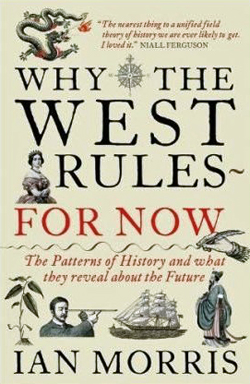
Why does the West rule? Eminent Stanford polymath Ian Morris answers this provocative question, drawing uniquely on 20,000 years of history and archaeology, and the methods of social science. Why did British boats shoot their way up the Yangzi in 1842, rather than Chinese ones up the Thames? Why do Easterners use English more than Europeans speak in Mandarin or Japanese? To put it bluntly, why does the West rule? There are two schools of thought: the ‘Long-Term Lock In’ theory, suggesting some sort of inevitability, and the ‘Short-Term Accident’ theory. But both approaches have misunderstood the shape of history. Ian Morris presents a startling new theory. He explains with flair and authority why the paths of development differed in the East and West and – analysing a vicious twist in trajectories just ahead of us – predicts when the West’s lead will come to an end.
Posted on March 30, 2011 by The Orwell Prize -

Chris Mullin’s bestselling A View From the Foothills provided a riveting insider’s account of life as a junior minister. Laying bare the personalities, pyrotechnics and political intrigues of the Blair years, it was described as Yes, Minister meets Alan Clark. Funny and self-deprecating, the new diaries run from his sacking by Blair as a minister after the 2005 elections to Election Day 2010 as he prepared to step down after 23 years as an MP wryly observing ‘they say failed politicians make the best diarists, in which case I am in with a chance.’
Posted on March 30, 2011 by Eric Blair -

The Republic of Ireland, which declared itself in 1949, allowed the Catholic Church to dominate its civil society and education system. Investment by American and European companies, and a welcoming tax regime, created the ‘Celtic Tiger’ of the 1990s. That brief burst of good fortune was destroyed by a corrupt political class which encouraged a wild property boom, leaving the country almost bankrupt. What Ireland needs now is a programme of real change. It needs to become a fully modern republic in fact as well as name. This disastrous economic collapse also allows us to think through the kind of multiculturalism that Ireland needs, and to build institutions that can accommodate the sudden influx of migrants who have come to Ireland in the past 15 years. The State should take over the entire education system, for which it pays already, and make it fit for the 21st century. The political system is dysfunctional and is one of the main causes of the debacle we have just experienced. Ireland needs constitutional reform. Politicians have been let get away with murder, and there is a fatalistic sense that nothing can change. The country needs to encourage participation in, and oversight and knowledge of politics, to make people feel that they have a right to challenge the old party machines and to make a difference. It is their country, after all.
Posted on March 30, 2011 by Eric Blair -

The definitive account of New Labour’s rise and fall. On 11 May 2010 Gordon Brown resigned as Prime Minister; it marked the end of thirteen dramatic years of Labour government. When he finally released his grip on power, many questions remained about the most intriguing and complex political figure of modern times and co-architect of New Labour. Leading commentator Steve Richards watched every step of the stormy political journey from 1992, when Brown became shadow chancellor, to the day he left Number Ten, and narrates it here for the first time. Steve Richards has gained access to all levels of Westminster to explain this complex party and its leadership, reflecting on the outcome of the 2010 general election and what the fall of New Labour means for our nation’s political future.
Posted on March 30, 2011 by The Orwell Prize -
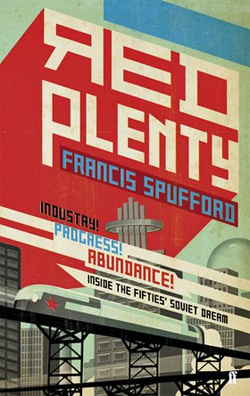
Once upon a time in the Soviet Union… Strange as it may seem, the grey, oppressive USSR was founded on a fairytale. It was built on the 20th-century magic called ‘the planned economy’, which was going to gush forth an abundance of good things that the lands of capitalism could never match. And just for a little while, in the heady years of the late 1950s, the magic seemed to be working. Red Plenty is about that moment in history, and how it came, and how it went away; about the brief era when, under the rash leadership of Nikita Khrushchev, the Soviet Union looked forward to a future of rich communists and envious capitalists, when Moscow would out-glitter Manhattan, and every Lada would be better engineered than a Porsche. It’s about the scientists who did their genuinely brilliant best to make the dream come true, to give the tyranny its happy ending. It’s history, it’s fiction. It’s a comedy of ideas, and a novel about the cost of ideas. By the award-winning (and famously unpredictable) author of The Child That Books Built and Backroom Boys, Red Plenty is as ambitious as Sputnik, as uncompromising as an Aeroflot flight attendant – and as different from what you were expecting as a glass of Soviet champagne.
Posted on March 30, 2011 by The Orwell Prize -

Great-grandson of a crofter and son-in-law of a Duke, Harold Macmillan (1894–1986) was both complex as a person and influential as a politician. Marked by terrible experiences in the trenches in the First World War and by his work as an MP during the Depression, he was a Tory rebel – an outspoken backbencher, opposing the economic policies of the 1930s and the appeasement policies of his own government. Churchill gave him responsibility during the Second World War with executive command as ‘Viceroy of the Mediterrranean’. After the War, in opposition, Macmillan overhauled the Conservatives on progressive and radical lines; after 1951, in government, he served as Minister of Housing, Defence Secretary, Foreign Secretary and Chancellor of the Exchequer. He became Prime Minister after the Suez Crisis, and between 1957 and 1963 presided over Great Britain’s transition from the age of austerity to that of affluence. He also proved himself one of the great publishers of his generation. The culmination of 35 years of research by one of our most respected historians, Supermac gives an unforgettable portrait of a turbulent age. It is a magisterial biography destined to become a classic.
Posted on March 30, 2011 by The Orwell Prize -

For much of the world, Iran’s 2009 summer of upheaval was an epic piece of theatre distantly observed. As citizens took to the streets in their millions to protest a stolen election and the regime that made it possible, and later, in smaller numbers, did battle with the shock troops of the Islamic Republic, so the country became effectively off limits for the world’s media. This dramatic confrontation – and the deep divisions that opened among Iran’s rulers as a result – have yet to be convincingly described for a Western audience. Afsaneh Moqadam observed and took part in the momentous events of that summer. Here, through the eyes of Mohsen, one of Tehran’s young, courageous protesters, Moqadam tells the story of these historic months, from the mass marches that greeted the disputed election results to their brutal suppression by the hated Basij militia – and a dark aftermath of imprisonment, torture and a show trial worthy of Stalinist Russia. The result is an inspiring account of a confrontation that has signalled the fragility of the Islamic Republic and given pause to those Western leaders, notably President Barack Obama, who must grapple diplomatically with what may become the world’s next nuclear power. Above all, Death to the Dictator! is testament to the resilience of the human spirit, and its ability to strike fear in the hearts of despots.
Posted on March 30, 2011 by The Orwell Prize -

For Zaiba Malik, growing up in Bradford in the ‘70s and ‘80s certainly has its moments – staying up all night during Ramadan with her father; watching mad Mr Aziz searching for his goat during Eid; dancing along to Top of the Pops (so long as no-one’s watching). And, of course, there’s her mother – whether she’s writing another ingratiating letter to the Queen or repeatedly referring to Tom Jones as ‘Thumb Jone’. But Zaiba’s story is also one of anxiety and seemingly irreconcilable opposites. Growing up she is constantly torn between two identities: ‘British’ and ‘Muslim’. Alienated at school and confused at home, the racism she encounters as a child mirrors the horrors she experiences at the hands of Bangladeshi interrogators as a journalist years later. We Are A Muslim, Please is a stirring and enchanting memoir. We see, through Zaiba’s childhood eyes, the poignancy of growing up in a world whose prejudices, contradictions and ambiguities are at once distressing and utterly captivating.
Posted on March 30, 2011 by Eric Blair -
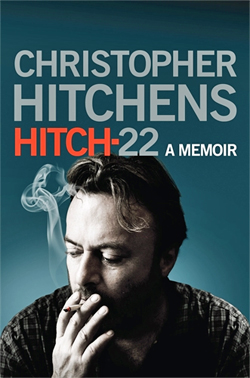
Over the last thirty years, Christopher Hitchens has established himself as one of the world’s most influential public intellectuals. His originality, bravery, range, and wit made him first a leading iconoclast of the political left and then, later in his career, a formidable advocate of secular liberalism. When the Twin Towers were attacked in September 2001, Hitchens was re-energised again, quickly emerging as one of the fiercest and most influential advocates of war on Iraq. In this long-awaited and candid memoir, Hitchens re-traces the footsteps of his life to date, from his childhood in Portsmouth, with his adoring, tragic mother and reserved Naval officer father; to his life in Washington DC, the base from which from he would launch fierce attacks on tyranny of all kinds. Along the way, he recalls the girls, boys and booze; the friendships and the feuds; the grand struggles and lost causes; and the mistakes and misgivings that have characterised his life. Hitch-22 is, by turns, moving and funny, charming and infuriating, enraging and inspiring. It is an indispensable companion to the life and thought of our pre-eminent political writer. Christopher Hitchens died on 15 December 2011.
Posted on March 30, 2011 by The Orwell Prize -
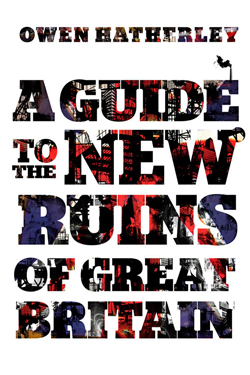
A darkly humorous architectural guide to the decrepit new Britain that neoliberalism built.
New Labour came to power in 1997 amid much talk of regenerating the inner cities left to rot under successive Conservative governments. Over the next decade, urban environments became the laboratories of the new enterprise economy: of finance, property speculation, and the service industry. Now, with New Labour capsized, Owen Hatherley sets out to explore the wreckage—the architecture that epitomized an age of greed and selfish aspiration. From riverside apartment complexes, art galleries and amorphous interactive “centres” to shopping malls, call centres and factories turned into expensive lofts, Hatherley maps the derelict Britain of the 2010s, an emphatic expression of a failed politics.
Posted on March 30, 2011 by The Orwell Prize -
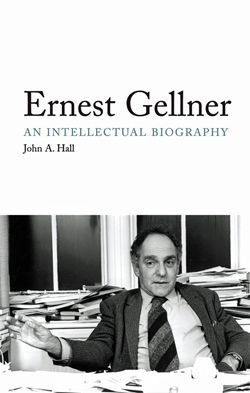
The first and monumental biography of the life and thought of the ground breaking historian and writer on nationalism.
Ernest Gellner (1925–95) was one of the last great thinkers from Central Europe to be condemned by his Jewish background to experience the worst horrors of the twentieth century. He was a multilingual polymath, able to set the agenda in the study of nationalism and the sociology of Islam. His intellectual trajectory differed from that of similar thinkers both in producing a highly integrated philosophy of modernity and in combining a respect for nationalism with an appreciation of the power of modern science. In this definitive biography, particular attention is paid to his Prague roots, and to debates with Michael Oakeshott, Isaiah Berlin, Charles Taylor, Noam Chomsky, Edward Said, and many others.
Posted on March 30, 2011 by The Orwell Prize -

Leningrad, 1952. Andrei, a young hospital doctor, and Anna, a nursery school teacher, are forging a life together in the postwar, postsiege wreckage. But their happiness is precarious, like that of millions of Russians who must avoid the claws of Stalin’s merciless Ministry of State Security. So when Andrei is asked to treat the seriously ill child of a senior secret police officer, he and Anna are fearful. Trapped in an impossible, maybe unwinnable game, can they avoid the whispers and watchful eyes of those who will say or do anything to save themselves? The Betrayal is a powerful and touching novel of ordinary people in the grip of a terrible and sinister regime, and a moving portrait of a love that will not be extinguished.
Posted on March 30, 2011 by The Orwell Prize -

264 wood and ivory carvings, none of them larger than a matchbox: potter Edmund de Waal was entranced when he first encountered the collection in the Tokyo apartment of his great uncle Iggie. Later, when Edmund inherited the ‘netsuke’, they unlocked a story far larger than he could ever have imagined… The Ephrussis came from Odessa, and at one time were the largest grain exporters in the world; in the 1870s, Charles Ephrussi was part of a wealthy new generation settling in Paris. Charles’s passion was collecting; the netsuke, bought when Japanese objets were all the rage in the salons, were sent as a wedding present to his banker cousin in Vienna. Later, three children – including a young Ignace – would play with the netsuke as history reverberated around them. The Anschluss and Second World War swept the Ephrussis to the brink of oblivion. Almost all that remained of their vast empire was the netsuke collection, dramatically saved by a loyal maid when their huge Viennese palace was occupied. In this stunningly original memoir, Edmund de Waal travels the world to stand in the great buildings his forebears once inhabited. He traces the network of a remarkable family against the backdrop of a tumultuous century and tells the story of a unique collection.
Posted on March 30, 2011 by The Orwell Prize -

In 23 Things They Don’t Tell You About Capitalism the award-winning Ha-Joon Chang dispels the myths and prejudices that have come to dominate our understanding of how the world works. He succeeds in both setting the historical record straight (‘the washing machine has changed the world more than the internet’; ‘the US does not have the highest living standard in the world’; ‘people in poor countries are more entrepreneurial than people in rich countries’) and persuading us of the consequences of his analysis (‘making rich people richer doesn’t make the rest of us richer’; ‘companies should not be run in the interest of their owners’; ‘financial markets need to become less, not more, efficient’). As Chang shows above all else, all economic choices are political ones, and it is time we started to be honest about them.
Posted on March 30, 2011 by The Orwell Prize -

The Republic of Ireland, which declared itself in 1949, allowed the Catholic Church to dominate its civil society and education system. Investment by American and European companies, and a welcoming tax regime, created the ‘Celtic Tiger’ of the 1990s. That brief burst of good fortune was destroyed by a corrupt political class which encouraged a wild property boom, leaving the country almost bankrupt. What Ireland needs now is a programme of real change. It needs to become a fully modern republic in fact as well as name. This disastrous economic collapse also allows us to think through the kind of multiculturalism that Ireland needs, and to build institutions that can accommodate the sudden influx of migrants who have come to Ireland in the past 15 years. The State should take over the entire education system, for which it pays already, and make it fit for the 21st century. The political system is dysfunctional and is one of the main causes of the debacle we have just experienced. Ireland needs constitutional reform. Politicians have been let get away with murder, and there is a fatalistic sense that nothing can change. The country needs to encourage participation in, and oversight and knowledge of politics, to make people feel that they have a right to challenge the old party machines and to make a difference. It is their country, after all.
















